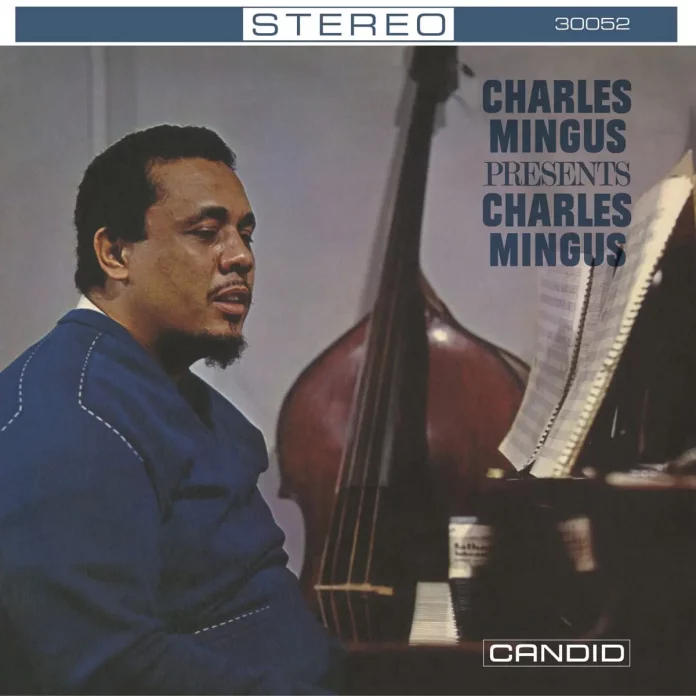When I first played this disc there were moments when I thought the top of my head was corning off. It is certainly the weirdest record I’ve heard since I reviewed the last Ornette Coleman!
For one thing, although the album was recorded in a studio, Mingus tried to set up a night club atmosphere in order that everyone should feel more relaxed. So the lights were turned out and Mingus introduced each number to a non-existent audience. Alright – it probably did make the musicians feel better but the remarks should have been edited out of the final product. If you play the disc more than once they just become irritating.
But far more weird is some of the playing. “What Love,” for instance, contains a remarkable “conversation” between Mingus on string bass and Eric Dolphy on bass clarinet which according to the notes is a re-enaction of a scene that took place on the bandstand in a club. Dolphy tells Mingus he is going to leave the group (he has, in fact, now left), Mingus criticises him for leaving but Dolphy explains why he has to, asks Mingus to understand – and at last Mingus does. To hear it once is amusing but I couldn’t listen to it over and over again.
Apart from the eccentricities, there is some stimulating music in this set. Trumpeter Curson, new to me, is a powerful musician with an impressive technique, a fine flow of ideas and a good tone. Dolphy at times reminds me very much of Ornette Coleman but I find him much easier to listen to. At least he manages to swing.
Richmond is a great drummer and as for Mingus, he is simply wonderful. Listen for the bit on “Folk Forms” where he and Richmond nearly burn up the grooves in the most down-to-earth, swingiest playing I’ve heard for months.
“Faubus” is a damning indictment of Governor Faubus (described as “the All-American heel”), Eisenhower and others and this version includes the talking sections which Mingus says he was not allowed to do in the earlier recorded version (included in the “Mingus Ah Um” set on Philips). Unfortunately I cannot understand the half of what’s being said.
Discography
Folk Forms No. 1; Original Faubus Fables (21 min) – What Love; All The Things You Could Be By Now If Sigmund Freud’s Wife Was Your Mother (22 min)
Charles Mingus (bs); Ted Curson (tpt); Eric Dolphy (alt, bs, clt); Dannie Richmond (d).
(Candid 8005 12inLP 50s. 5d.)
















